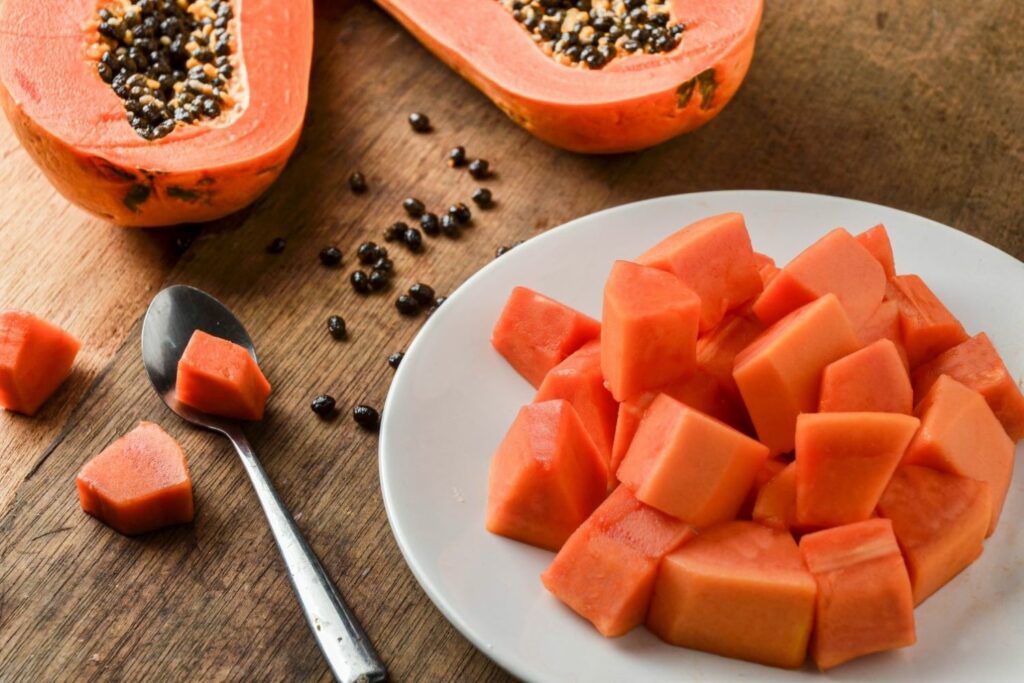Who Should Not Eat Pawpaw? Hidden Risks of This Superfruit You Need to Know

Pawpaw—also known as papaya—is often hailed as a miracle fruit. Packed with vitamin C, vitamin A, fiber, digestive enzymes, and antioxidants like lycopene, it offers numerous health benefits: from boosting immunity and improving digestion to helping prevent chronic diseases.
But here’s the catch—not everyone should eat pawpaw.
Despite its glowing reputation, certain groups of people may experience negative health effects from eating this tropical fruit. If you’re wondering who should not eat pawpaw, this guide breaks it all down for you.
Who Should Avoid Eating Pawpaw?

1. Pregnant Women
Unripe or semi-ripe pawpaw contains papain, a compound that can stimulate uterine contractions and potentially trigger miscarriage especially in early pregnancy. Women with a history of miscarriage should be particularly cautious. Only fully ripe pawpaw should be consumed during pregnancy, and even then, in moderation.
2. Individuals at Risk of Kidney Stones
While vitamin C is beneficial, excess intake from foods like pawpaw can increase oxalate production in the body, potentially leading to kidney stone formation. If you're prone to kidney stones, it's best to limit or monitor your intake of high-vitamin C fruits like pawpaw.
3. People Allergic to Latex
Pawpaw contains enzymes such as papain and chymopapain—similar to proteins found in latex. If you have a latex allergy, eating pawpaw could trigger allergic reactions like itching, swelling, or more severe symptoms. Avoid pawpaw if you are sensitive to latex.
4. People with Heart Conditions
Some compounds in pawpaw are known to slow down the heart rate, which can be risky for individuals with existing cardiovascular problems. If you have any heart condition, consult your doctor before consuming pawpaw regularly.
5. People with Hypothyroidism
For individuals with underactive thyroid glands, pawpaw may interfere with thyroid hormone regulation and slow metabolism further. If you have hypothyroidism, check with a healthcare provider before adding pawpaw to your diet.
Health Benefits of Pawpaw (Papaya)
Even with its risks for certain people, pawpaw remains one of nature’s most nutrient-packed fruits. Here are some of the top scientifically backed benefits:

Supports Heart Health: Rich in fiber, antioxidants, potassium, and vitamins C & E—pawpaw helps reduce cholesterol buildup and supports better blood circulation.
Improves Skin Appearance: Papain and antioxidants exfoliate, hydrate, and protect the skin against aging and blemishes.
Boosts Digestion: The enzymes papain and chymopapain aid in protein breakdown and soothe digestion issues.
Great for Diabetics: Pawpaw’s hypoglycemic effect may help regulate blood sugar naturally.
Anti-Aging Properties: High levels of alpha-hydroxy acids (AHAs) keep skin youthful and firm.
Cancer-Fighting Nutrients: Compounds like lycopene and beta-cryptoxanthin help reduce the risk of cancers, especially of the lung and breast.
Menstrual Regulation: Carotene in pawpaw stimulates estrogen production and may ease menstrual discomfort.
Aids Weight Loss: Low-calorie and water-rich, pawpaw supports hydration, metabolism, and digestion.
Protects Eye Health: Nutrients like lutein and zeaxanthin shield the eyes from degenerative conditions.
Side Effects of Eating Pawpaw (Especially on an Empty Stomach)

Overconsumption or eating pawpaw on an empty stomach can lead to:
Uterine contractions and miscarriage in pregnant women
Irritation of the esophagus lining
Birth defects in breastfeeding infants
Allergic reactions due to latex sensitivity
Low blood sugar (risky for people with hypotension)
Reduced sperm count (linked to pawpaw seeds)
Toxicity from chemicals like benzyl isothiocyanate
Conclusion
While pawpaw is a nutrient-rich powerhouse, it’s not ideal for everyone. If you fall into any of the risk categories mentioned, it’s best to speak to your doctor before making pawpaw a regular part of your diet.
Understanding who should not eat pawpaw is just as important as knowing its benefits.

.png)
